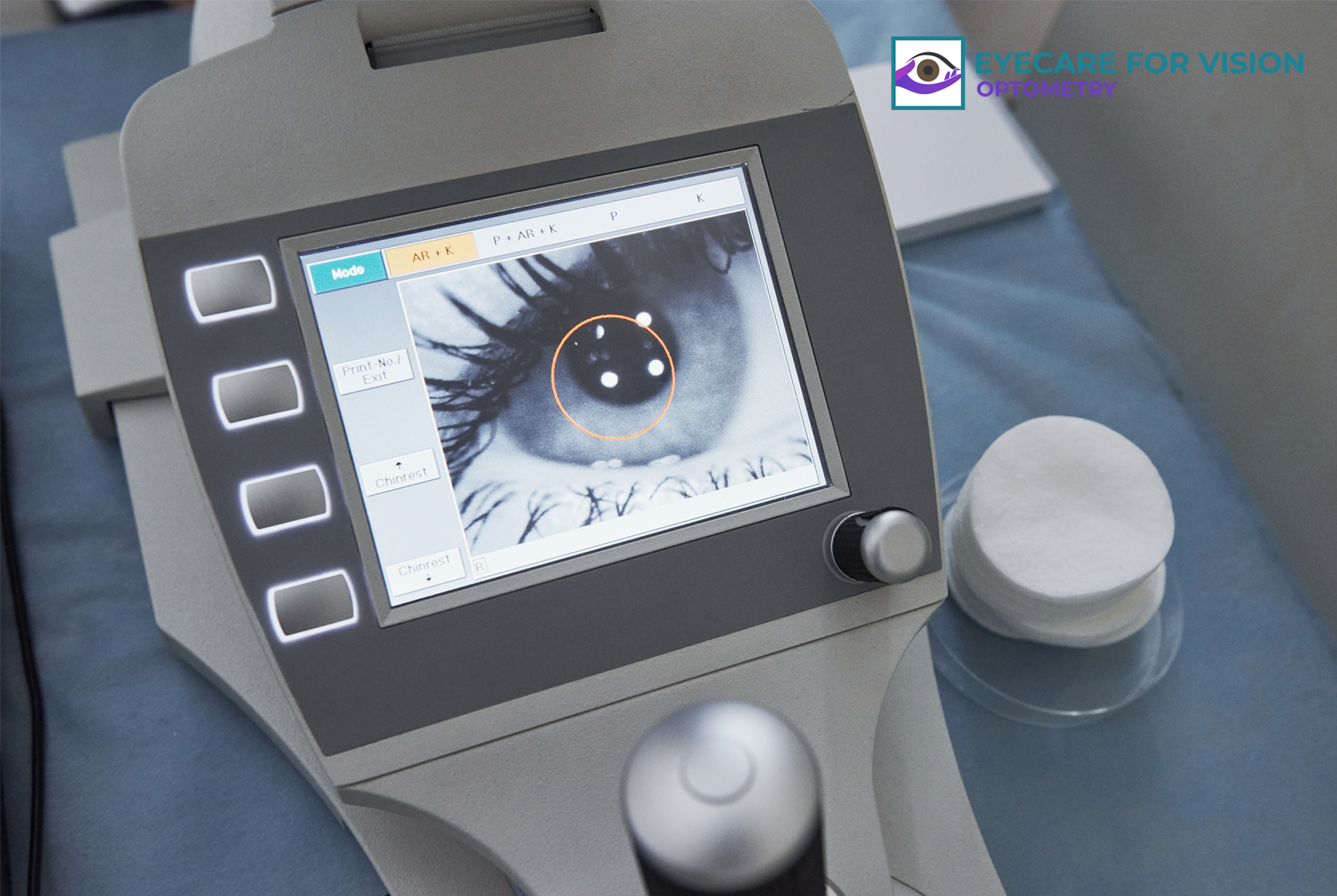Can Eye Exams Reveal Signs of a Brain Tumor or Stroke?
TLDR
Eye exams can detect signs of brain tumors or strokes early.
Optometrists look for changes in the optic nerve and vision.
Regular eye exams are essential for early intervention.
Consult a healthcare provider if you experience unusual symptoms.
Are There Ways to Prevent Age-Related Vision Loss?
TLDR
Age-related vision loss can result from conditions such as cataracts, glaucoma, macular degeneration, and diabetic retinopathy.
Regular Comprehensive Eye Exams help detect changes early.
Maintain a healthy diet rich in nutrients like lutein, zeaxanthin, and vitamins C and E.
Avoid smoking and protect your eyes from UV exposure with quality sunglasses.
Manage diabetes and other chronic conditions with professional care.
Address issues like dry eyes or myopia early to prevent discomfort and further complications.
False eyelashes can interfere with proper eyelid evaluation and harbor mites such as Demodex.
Early detection and proactive care are key to preserving lifelong vision.
What’s the Difference Between Normal Aging of the Eye and Disease?
TLDR
Normal Aging: Includes presbyopia, reduced tear production, and slight color vision changes.
Eye Diseases: Glaucoma, cataracts, and age-related macular degeneration (AMD) are common.
Symptoms: Blurry vision, eye pain, and vision loss could signal disease.
Treatment: Varies from lifestyle changes to surgery; consult a professional.
Prevention: Healthy diet, UV protection, and regular eye exams help maintain eye health.
Consultation: See a doctor if you notice changes in vision or discomfort.
Are Regular School Vision Screenings Enough to Catch Eye Problems in Kids?
TLDR
School vision screenings are basic checks and not comprehensive.
They may miss conditions like amblyopia, strabismus, and astigmatism.
Comprehensive eye exams are more thorough, assessing overall eye health.
Early detection and treatment can prevent long-term vision issues.
Consult your healthcare provider for personalized advice.
How Can I Tell If My Child Has Trouble Seeing If They Don’t Complain?
TLDR
Children may not always express vision problems.
Look for signs like squinting, sitting too close to screens, or frequent headaches.
Regular comprehensive eye exams are crucial.
Treatment options include glasses, contact lenses, or vision therapy.
Consult your healthcare provider for personalized advice.
Prevention tips include limiting screen time and ensuring proper lighting.
Schedule regular eye check-ups with a trusted optometrist.
Can Undiagnosed Vision Problems Affect a Child’s Learning and Development?
TLDR
Vision problems can significantly impact a child's learning and development.
Symptoms may include difficulty reading, poor attention span, and frequent headaches.
Comprehensive eye exams in Rancho Bernardo are crucial for early detection.
Treatment options vary based on the condition but could include glasses or vision therapy.
Early detection and intervention can prevent long-term developmental issues.
Regular eye exams are recommended for early identification and management.
Do Migraines Have a Connection with Eye or Vision Problems?
TLDR
• Migraines can be associated with vision problems, including aura and visual disturbances.
• Comprehensive eye exams are crucial for diagnosing eye-related migraine issues.
• Treatment options vary, with pros and cons for each.
• Lifestyle changes can help manage migraine and vision symptoms.
• Consult an eye care specialist if you experience persistent or severe symptoms.
What Eye Changes Should People with High Blood Pressure Watch For?
TLDR
High blood pressure can lead to hypertensive retinopathy, optic neuropathy, and macular degeneration.
Regular comprehensive eye exams are critical for early detection.
Treatments include lifestyle modifications and medication to control blood pressure.
Prevention focuses on maintaining a healthy lifestyle and frequent eye exams.
Consult your healthcare provider for personalized advice.
How Can Pregnancy Impact Vision and Eye Health?
TLDR
Hormonal changes during pregnancy can cause vision fluctuations.
Common symptoms include dry eyes, blurred vision, and changes in prescription.
Severe conditions like gestational diabetes and preeclampsia can affect vision.
Regular eye exams are crucial for detecting and managing changes.
Consult your healthcare provider if experiencing significant vision changes.
Prevention includes a healthy diet, hydration, and regular eye check-ups.
Recent studies highlight the importance of eye care during pregnancy.
Can Allergies Make My Eyes Worse Over Time?
TLDR
• Allergies can exacerbate eye conditions over time, causing discomfort and potential vision issues.
• Symptoms include redness, itching, and tearing.
• Treatment options vary from medication to lifestyle changes.
• Comprehensive eye exams are crucial in identifying and managing conditions early.
• Prevention includes avoiding allergens and maintaining good eye hygiene.
• Recent studies highlight the impact of chronic allergies on eye health.
Does Wearing Sunglasses Actually Protect My Eyes from Disease?
TLDR
Sunglasses protect against harmful UV rays
Reduced risk of cataracts and macular degeneration
Prevention of skin cancer around the eyes
Protection from debris and dry eye syndrome
Essential for comprehensive eye health
Can Lack of Sleep Cause Eye Problems?
TLDR
Lack of sleep can lead to eye problems such as dry eyes, blurred vision, and eye spasms.
Sleep deprivation may exacerbate existing conditions like glaucoma or diabetic retinopathy.
Treatment options include lifestyle changes, artificial tears, and comprehensive eye exams.
Consult your healthcare provider if experiencing persistent eye issues or changes in vision.
Prevention includes maintaining a regular sleep schedule and minimizing screen time before bed.
How Does Nutrition Affect My Eye Health?
TLDR
Nutrition plays a crucial role in maintaining eye health and preventing diseases.
Key nutrients include vitamins A, C, and E, omega-3 fatty acids, and zinc.
Conditions such as macular degeneration, cataracts, and dry eye can be influenced by diet.
Regular comprehensive eye exams are essential for early detection of eye issues.
Consult your healthcare provider to tailor a diet suitable for your eye health needs.
What Happens if I Skip My Annual Eye Exam?
TLDR
Annual eye exams are crucial for detecting vision problems early.
Skipping exams can lead to undetected eye conditions like glaucoma or diabetic retinopathy.
Early detection aids in better management and treatment.
Comprehensive eye exams offer a holistic view of your eye health.
Consult your healthcare provider if you notice any changes in your vision.
Can Stress or Anxiety Affect My Vision?
TLDR
• Stress and anxiety can affect vision through eye strain, blurred vision, or headaches.
• Symptoms include dry eyes, sensitivity to light, and twitching.
• Treatment includes stress management, regular eye exams, and lifestyle changes.
• Recent studies show a link between stress and eye health.
• Consult your healthcare provider for personalized advice.
What is Computer Vision Syndrome (Digital Eye Strain), and How Can I Prevent It?
TLDR
Computer Vision Syndrome (CVS): A condition caused by prolonged digital screen use resulting in eye discomfort.
Symptoms: Eye strain, headaches, blurred vision, dry eyes, and neck/shoulder pain.
Prevention Tips: Follow the 20-20-20 rule, use anti-glare screens, maintain proper posture.
When to See a Doctor: Persistent symptoms affecting daily life.
Treatment Options: Prescription glasses, eye drops, ergonomic adjustments.
Research Update: Recent studies show increased CVS prevalence due to remote work trends.
What Causes Floaters and Flashes in Vision, and When Are They Serious?
TLDR
Floaters are small shapes seen in vision due to changes in the eye's vitreous.
Flashes occur when the retina is stimulated by pulling or rubbing.
Both can be benign but sometimes signal serious conditions like retinal detachment.
Comprehensive eye exams can help diagnose underlying issues.
Seek immediate medical attention if you experience a sudden increase in floaters or flashes.
What Systemic Diseases Can a Comprehensive Eye Exam Detect?
TLDR
A comprehensive eye exam can detect systemic diseases such as diabetes, hypertension, autoimmune disorders, and high cholesterol.
Diabetes-related changes in the retina can be identified early, helping prevent severe vision loss.
Hypertension can be detected through changes in the blood vessels of the eye.
Autoimmune disorders may first show symptoms in the eyes, including dryness and sensitivity to light.
High cholesterol can present as deposits on the eyelids or corneal rings.
Latest research suggests potential links between retinal changes and early signs of Alzheimer’s.
Regular exams are critical for prevention, early detection, and long-term health monitoring.
Is My Screen Time Affecting My Vision, and What Can I Do About It?
TLDR
Prolonged screen time can cause digital eye strain.
Symptoms include dry eyes, blurred vision, and headaches.
Implement the 20-20-20 rule: every 20 minutes, look at something 20 feet away for 20 seconds.
Regular comprehensive eye exams are crucial.
Consult your healthcare provider for personalized advice.



















